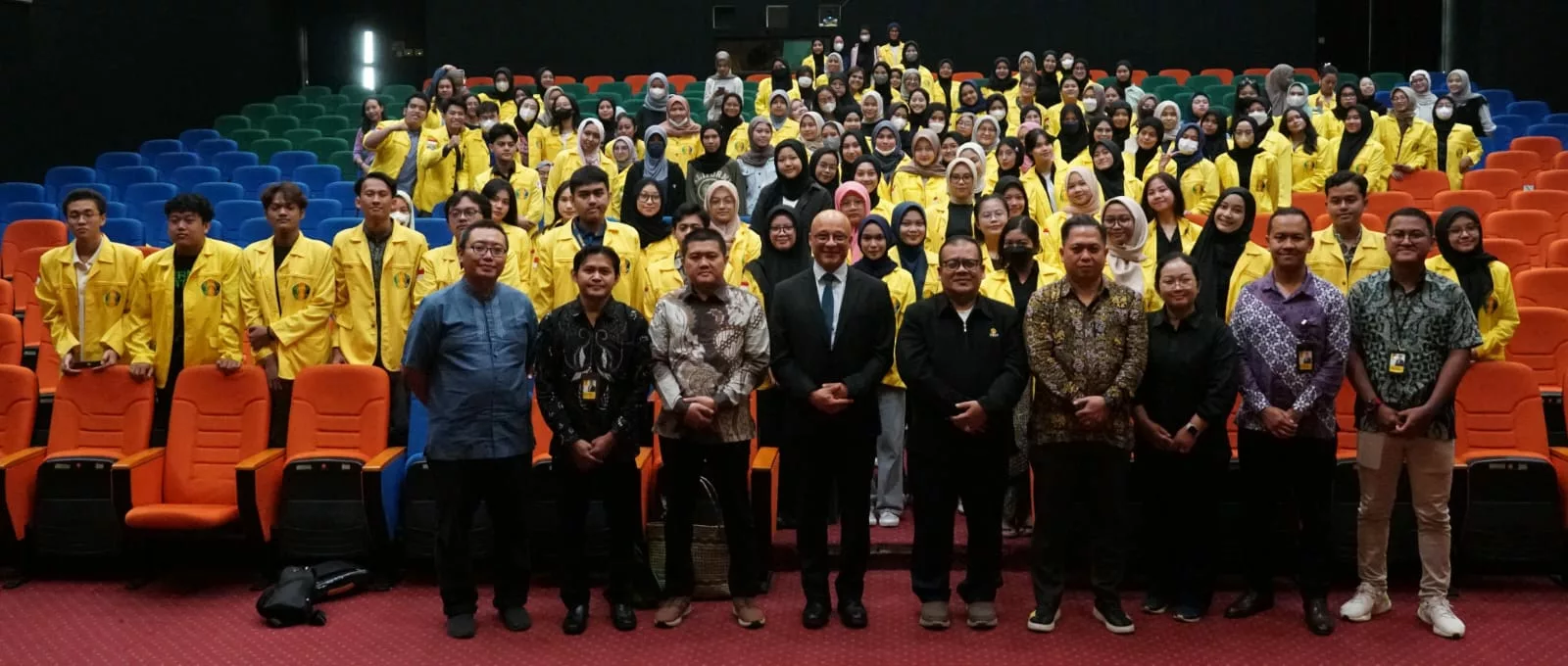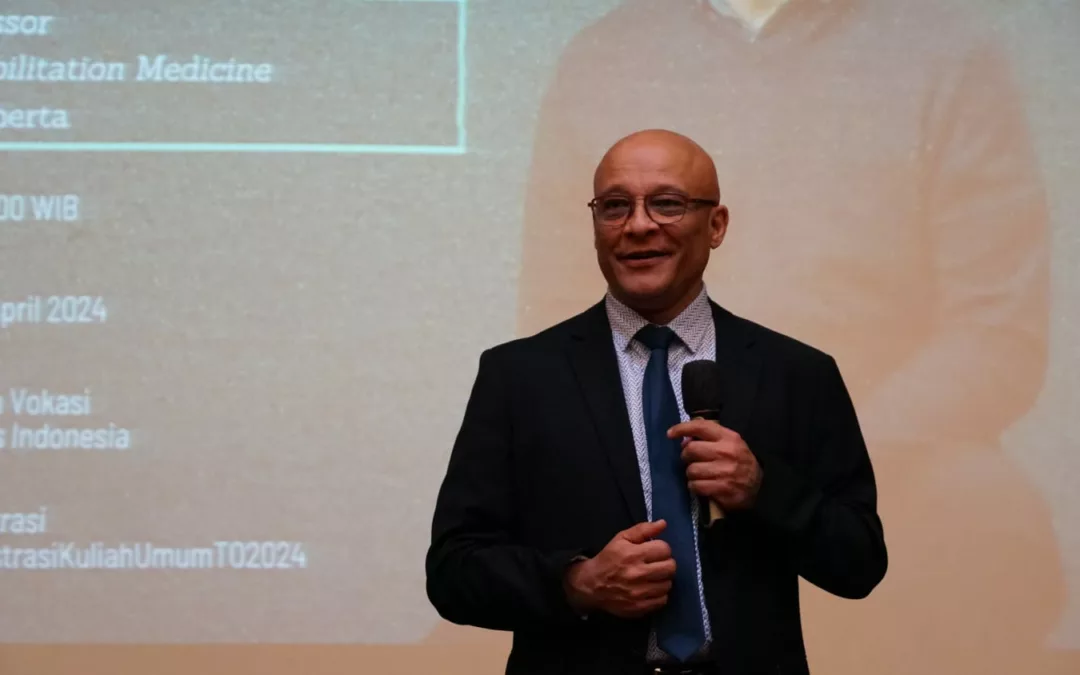Depok-Occupational therapy is a form of health service that aims to help individuals achieve independence, improve their ability to carry out daily activities, and participate in various roles. One of them is playing a role in increasing access to health services, supporting mental health and rehabilitation through health promotion in community-based programs. An example is designing programs that focus on mental health, such as group therapy for individuals with mental health conditions to promote well-being.
On the other hand, occupational therapy also contributes to improving inclusive education through strategies and support for children with special needs. “The strategy that can be built is to advocate for inclusive education. Therapy for children with disabilities,” said Shaniff Esmail, M.Sc., Ph.D., Chair and Professor Faculty of Rehabilitation Medicine, University of Alberta, at a public lecture on the Occupational Therapy study program, Vocational Education Program, Universitas Indonesia (UI) entitled “The Role of Occupational Therapy in Implementing The Sustainable Development Goals (SDGs)”, on April 2, 2024 at the UI Vocational Auditorium.
Nevertheless, there are still various challenges for occupational therapy science in Indonesia. For example, limited awareness of the benefits of occupational therapy, limited access to occupational therapy development, and difficulty in collaborating with other health professionals due to a lack of interdisciplinary understanding. One of the other main challenges is the inadequate number of human resources for therapists. In Indonesia, occupational therapy education is only available in two higher education institutions, one of which is the Universitas Indonesia.
 (Photo: Photo session with Shaniff and the public lecture audience for the Occupational Therapy study program)
(Photo: Photo session with Shaniff and the public lecture audience for the Occupational Therapy study program)
Shaniff added that efforts that can be made are to develop an occupational therapy curriculum and create competent therapists through various developments, such as interdisciplinary collaboration. “In addition, research projects related to the impact of occupational therapy interventions on achieving the SDGs can be carried out. This research can be collaborated globally through outbound programs, where students can study the implementation of SDGs in different contexts,” said Shaniff. Another strategy is to invite practitioners who are actively involved in the practice of implementing SDGs and provide a final project in the form of occupational therapy service design and objectives by aligning one or more SDGs.
During his visit to the UI Vocational Education Program, Shaniff was also a guest lecturer for the Occupational Therapy study program. Apart from that, exploring collaboration between the University of Alberta and the UI Vocational Education Program will be held in the form of teaching and research. Director of the UI Vocational Education Program, Padang Wicaksono, S.E., Ph.D, explained that public lecture activities featuring lecturers and practitioners from abroad will provide interesting experiences for students in deepening their knowledge.
“As an educational institution that creates graduates who are ready to work in industry, we continue to strive to provide quality learning. Apart from that, we also teach students to be more aware of world challenges, one of which is implementation and their role in realizing SDGs 2030,” said Padang. This is in line with what Shaniff said that in the formulation of SDGs 2030, Occupational Therapy contributes to three goals of developing community welfare, namely SDGs number 3, Good Health and Well-being; number 4, Quality Education; and number 10 Reducing Inequalities.


